Vietnam always makes efforts to ensure human rights, which are recognized and highly appreciated by the international community.
Respecting and ensuring human rights is a consistent viewpoint and policy of the Party and State of Vietnam, stipulated in the Constitution and laws of Vietnam over the years, specified in socio -economic development strategies and plans suitable to each stage of the country's development, and always actively and responsibly demonstrated in the process of implementing international obligations and commitments that Vietnam has signed on human rights.
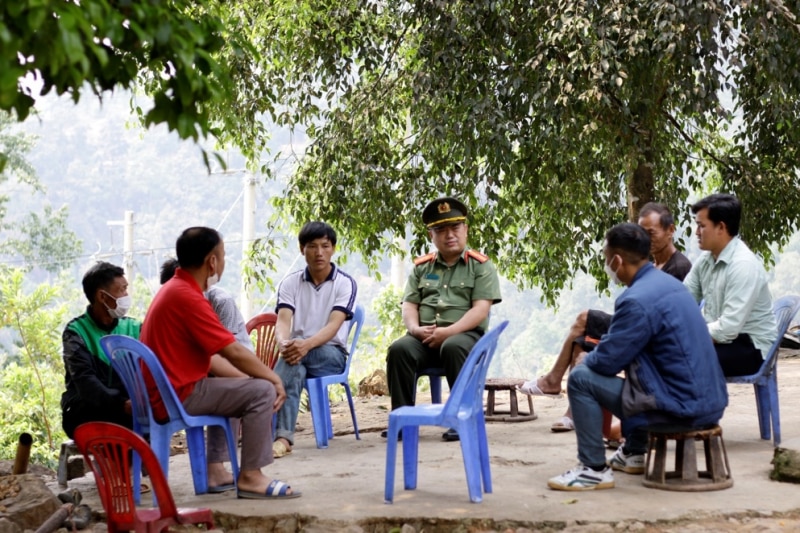
Currently, basic human rights are recognized in the 2013 Constitution of Vietnam, protected and promoted by specific legal documents and vividly demonstrated through the practical life of the people. In their speeches to the international community, press agencies, leaders of the Party, the State or the spokesperson of the Ministry of Foreign Affairs of Vietnam always affirm that protecting and promoting human rights is a consistent policy of the State of Vietnam. Vietnam always considers people as the center and driving force of the innovation process and the country's development, always striving for the goal of improving the lives and enjoyment rights of the people, leaving no one behind.
Through the Party's viewpoints and guidelines, the State's policies and laws, human rights in civil, political, economic, cultural, social aspects, and the rights of vulnerable social groups have achieved many important results. In recent times, Vietnam has made great efforts in ensuring human rights, especially in perfecting the legal system on human rights according to international conventions on human rights to which Vietnam is a member. Specifically, in the UPR National Report of the 4th cycle of Vietnam, it was conducted seriously and comprehensively, with the full participation of relevant parties as well as United Nations agencies in Vietnam. On May 10, 2024, at the United Nations headquarters (Geneva, Switzerland), the Working Group on the Universal Periodic Review (UPR) Cycle IV of the United Nations Human Rights Council (at the 46th session of the Working Group on the UPR of the United Nations Human Rights Council taking place from April 29 to May 10, 2024) agreed on Vietnam's UPR National Report Cycle IV and acknowledged and highly appreciated the issue of ensuring human rights in Vietnam in recent years.
In particular, specific evidence is recorded such as Vietnam's achievements in sustainable multidimensional poverty reduction, ensuring social security (social insurance system, health insurance, unemployment insurance ...), improving people's lives, ensuring rights for vulnerable groups (women, children, the poor, the elderly, people with disabilities, ethnic minorities, people with HIV/AIDS ...) and international and regional dialogue and cooperation activities on human rights that Vietnam has participated in. Specifically, from 2009 to present, GDP per capita in Vietnam has increased by 25%, the poverty rate has decreased by 1.5% per year. The health insurance coverage rate increased from 81% (in 2016) to 92% (in 2022). The rate of households using clean water sources reached 98.3% (an increase of nearly 1 percentage point compared to 2018). By September 2023, Vietnam had 78 million Internet users (an increase of 21% compared to the number of subscribers in 2019), 96.6 million mobile broadband subscribers (an increase of 38% compared to 2019). To date, there are 72,000 associations operating in Vietnam regularly, actively participating in contributing to solving important socio-economic issues of the country. The media, press and Internet have developed strongly and become forums for people and social organizations, a tool to monitor the implementation of policies and laws, and protect the legitimate rights and interests of the people.
In the field of drafting legal documents, from 2019 to 2023, Vietnam has made efforts to build a rule-of-law state with 44 laws passed, including many important legal documents related to human rights and citizens' rights such as: Law on Grassroots Democracy Implementation 2022, Law on Prevention and Control of Domestic Violence 2022, Law on Medical Examination and Treatment 2023... At the same time, Vietnam has also joined the 98th Convention of the International Labor Organization (ILO) on the right to organize and collective bargaining, ILO Convention 105 on the abolition of forced labor and participation in negotiations, officially joining the global agreement on safe and orderly migration...
Regarding foreign relations, Vietnam has established Comprehensive Strategic Partnership diplomatic relations with 8 countries (China, Russia, India, South Korea, the United States, Japan, Australia, France); Strategic Partnership relations with 11 countries (Spain, the United Kingdom of Great Britain and Northern Ireland, Germany, Italy, France, Indonesia, Thailand, Singapore, Malaysia, the Philippines, New Zealand) and Comprehensive Partnership relations with 13 countries (South Africa, Venezuela, Chile, Brazil, Argentina, Ukraine, Denmark, Myanmar, Canada, Hungary, Brunei, the Netherlands).
Not only making efforts to implement international commitments on ensuring human rights, Vietnam has always been proactive, active, and made many contributions in the field of promoting and protecting human rights in the region and the world. The clearest evidence for that is through the level of trust with a very high consensus vote rate when Vietnam ran for membership of the United Nations Human Rights Council for the 2023-2025 term and has had many initiatives on ensuring human rights, the rights of developing countries, the rights of disadvantaged groups, etc., which have been recognized and highly appreciated by the international community and countries. These are typical examples of the achievements in ensuring human rights of the Party and State of Vietnam.
The actual evidence of Vietnam's efforts and achievements in ensuring human rights has refuted the arguments of Vang Chinh Minh and a number of anti-people who said that "the human rights situation in Vietnam is getting worse and worse and cannot be improved". It is funny that these people ignore the truth, still deliberately turn a blind eye, do not see, do not hear to slander and distort.
Achievements in all aspects of development of ethnic minorities
In recent times, the Party and State of Vietnam have continued to mobilize resources to develop the economy, culture and society in ethnic minority areas, and build a contingent of ethnic minority cadres to meet the requirements of sustainable development in the current context. And the achievements in all political, economic, cultural and social fields in ethnic minority areas have demonstrated the correctness of the Party and State's ethnic policies and guidelines. Specifically:
In terms of politics, the number of National Assembly deputies who are ethnic minorities has increased through the elections, of which the 15th National Assembly had 89/499 deputies who were ethnic minorities, accounting for 17.84%, the highest rate among all National Assembly terms. At the same time, ethnic minorities with large populations such as Tay, Thai, Mong, Muong, Khmer, Nung... have all had representatives through the National Assembly terms and ethnic minorities with populations of less than 10,000 people have had representatives participating in the 15th National Assembly (such as the Mang, Lu, Brau...). To date, 51/53 ethnic minorities have had representatives participating in the National Assembly terms, with only 2 ethnic groups, O Du and Ngai, not yet having representatives participating in the National Assembly. At the same time, the proportion of ethnic minority cadres, civil servants and public employees at all levels is increasingly high (by May 2023, the proportion of ethnic minority cadres, civil servants and public employees will account for 11.5% of the total number of cadres, civil servants and public employees).
In terms of economy, culture and society, the lives of ethnic minorities have been significantly improved in all aspects. The rate of poor ethnic minority households by 2023 will be about 33% (down 5.62%) compared to the assigned target; 7.9 million ethnic minority workers have jobs, accounting for 82.1% of the total number of ethnic minorities aged 15 and over; the unemployment rate of ethnic minorities is only 1.4%, lower than the national unemployment rate; 96.12% of ethnic minorities have health insurance cards; the number of poor people and ethnic minorities participating in health insurance examination and treatment is nearly 43 million, accounting for 24% of the total number of health insurance participants nationwide. At the same time, policies to preserve and promote the cultural identity, language, script, customs, beliefs, traditional festivals, tangible and intangible cultural values of ethnic minorities have been effectively implemented. Many traditional festivals of ethnic minorities have been restored and developed, contributing to preserving the cultural identity of ethnic groups in the Vietnamese national community. According to statistics from the Government Committee for Religious Affairs and the state management agency on religion, currently our country has about 2.8 million ethnic minorities following a religion (accounting for about 20% of the population being ethnic minorities) with 16 religions licensed to operate by the state.
Therefore, the statement by Vang Chinh Minh and other members of the organization "Hmong Alliance for Justice" that "ethnic minorities in Vietnam are still discriminated against and restricted by the government, preventing them from developing, and requesting international intervention through surveys and interviews with Mong ethnic minority areas in Vietnam, especially Mong people in the Central Highlands provinces" is completely untrue and has no basis in reality.
Respect and ensure freedom of belief and religion of citizens, including Mong ethnic people.
The consistent viewpoint of our Party and State is to respect and ensure the freedom of belief and religion of citizens within the framework of the Constitution and the law. In recent years, religions in our country have grown rapidly in terms of the number of followers and places of worship, expanding relations with many religious organizations abroad; all religious activities of the people, including ethnic minorities, are respected, guaranteed, facilitated, and equal by the government; the material and spiritual life of religious people is increasingly improved. According to legal provisions such as the 2013 Constitution and the 2016 Law on Belief and Religion, dignitaries, officials, monks, and followers of religious organizations, including ethnic minorities, enjoy full freedom of belief and religion as stipulated in legal documents on belief and religion. In fact, in recent times, local authorities have paid special attention to ensuring the freedom of belief and religion of ethnic minorities. To date, there are more than 1.2 million Protestants in Vietnam, of which about 873,700 are ethnic minorities, concentrated in the northern midland and mountainous regions and the Central Highlands.
For the Mong ethnic group, the Party, the State and the Government have had many policies and strategies focusing on investment in socio-economic development for ethnic minority areas in general and the Mong ethnic group in particular; local Party committees and authorities have focused on effectively implementing the Party and State's policies and strategies on work for the Mong ethnic group. In particular, Directive 45/CT-TW dated September 23, 1994 of the Secretariat "on some work in the Mong ethnic group", Conclusion Notice No. 64-TB/TW dated March 9, 2007 of the Secretariat of the 10th tenure on some work in the Mong ethnic group have resolved the immediate and long-term difficulties for the Mong people, helping them stabilize and develop production and life, promoting and creating conditions for the Mong ethnic group to be in harmony with the general development of the whole country and the great national unity bloc.
Party committees and local authorities have paid attention to consolidating and improving the quality of the grassroots political system; eliminating hunger and reducing poverty, creating conditions for economic, cultural and social development, preserving and promoting the traditional cultural identity of the Mong people, eliminating backward customs, and building cultural life in villages. Propaganda and education work has been focused on, helping the Mong people believe in and actively implement the policies of the Party and the State, and at the same time clearly recognize the plots and tricks of hostile and reactionary forces to cause division in the national solidarity bloc. The material and spiritual life of the Mong people has been clearly improved, and essential infrastructure has changed relatively comprehensively. In the economic fields, hunger and poverty reduction, and sedentarization have had many positive changes; the situation of spontaneous migration has been initially overcome; Many support mechanisms and policies to develop and transform the structure of crops and livestock, ensuring the lives of people.
Regarding the beliefs and religions of the Mong ethnic group, in addition to the majority of Mong ethnic groups following traditional beliefs, the number of Mong people following Protestantism has been increasing every year. By the end of 2022, the number of Mong people in Vietnam following Protestantism had increased to over 321,000 people (accounting for about 30% of Mong people in Vietnam), concentrated in the northern mountainous provinces and the Central Highlands and neighboring provinces; operating in 30 branches, more than 1,700 groups, belonging to Protestant denominations such as the Vietnam Evangelical Church (North), Vietnam Evangelical Church (South), Vietnam Christian Fellowship Church, etc.
The above reality is a vivid proof to refute the propaganda, distortions, and false accusations of those who incite division in the great national unity bloc, plotting to establish a "Mong State" such as Vang Chinh Minh and a number of subjects in the so-called "Mong Alliance for Justice" - a reactionary organization hiding under the guise of fighting for the rights of the Mong people to sabotage the country.


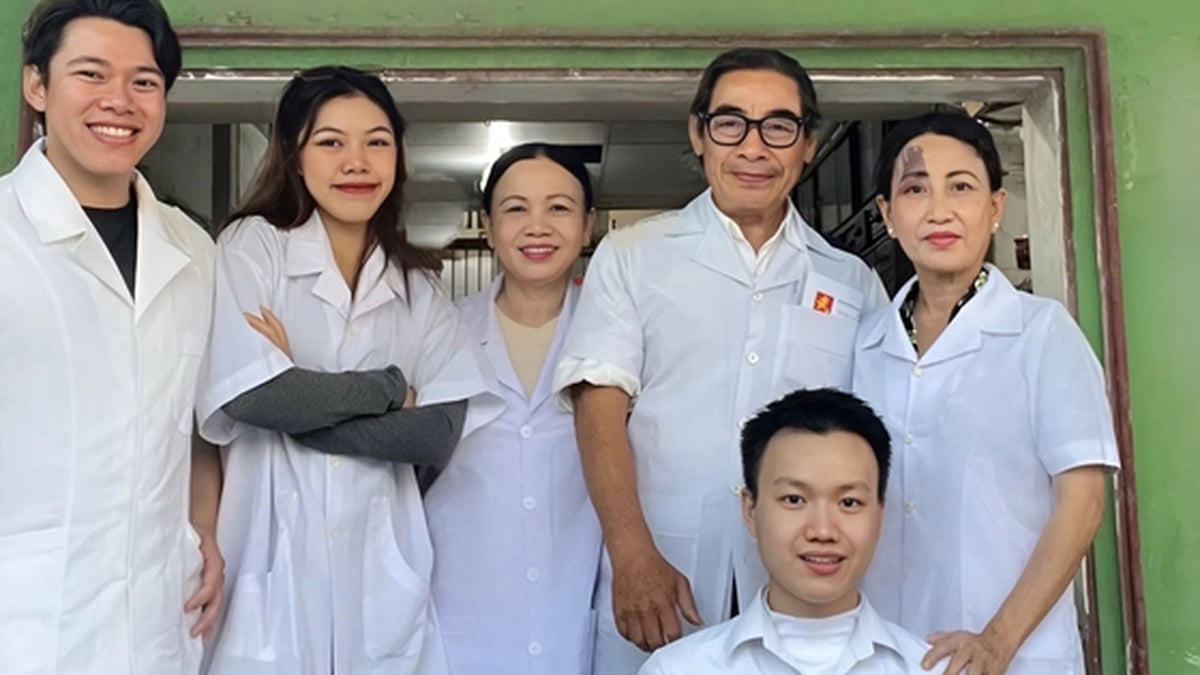

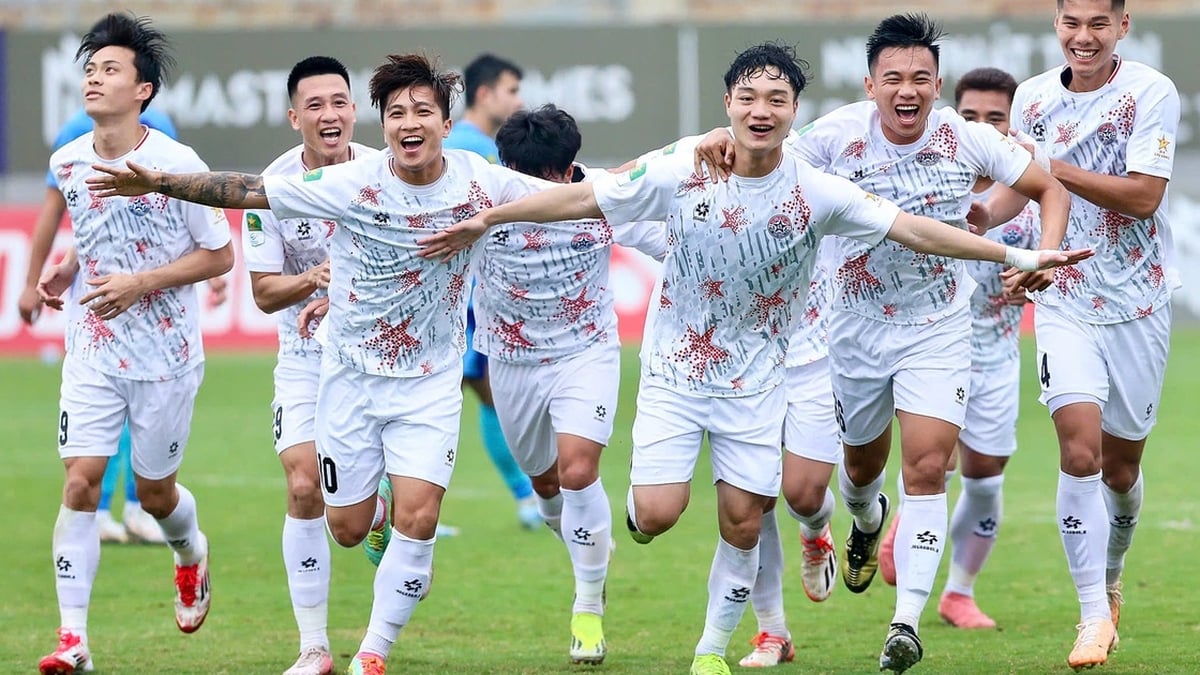

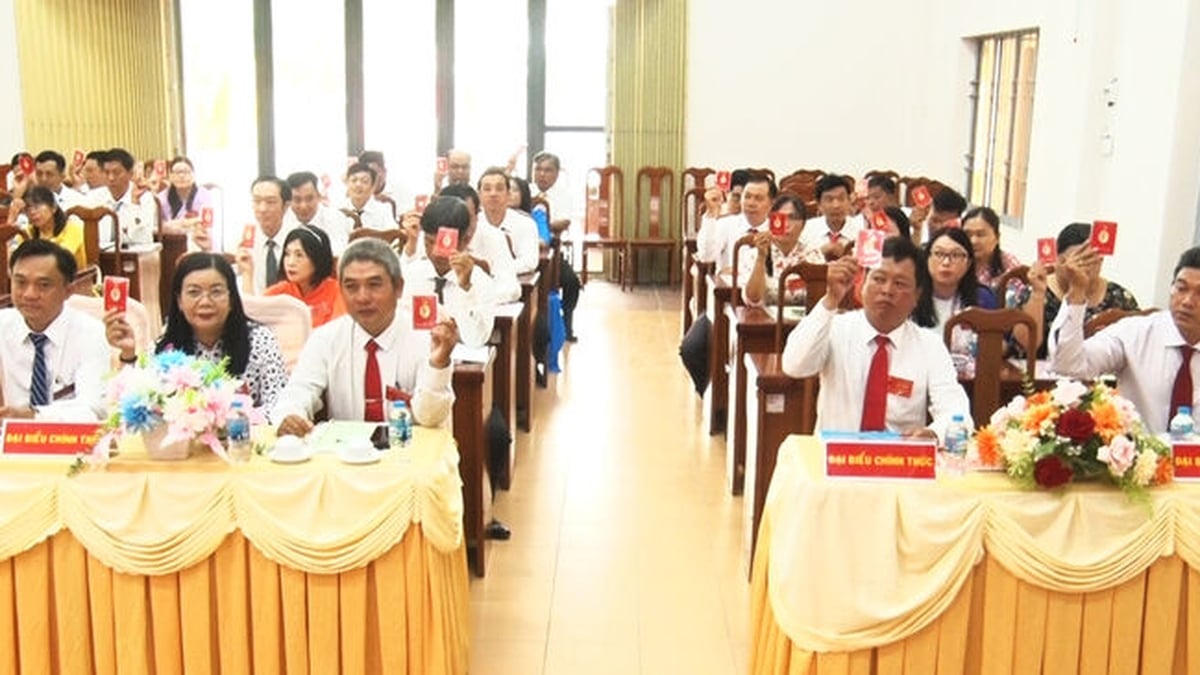
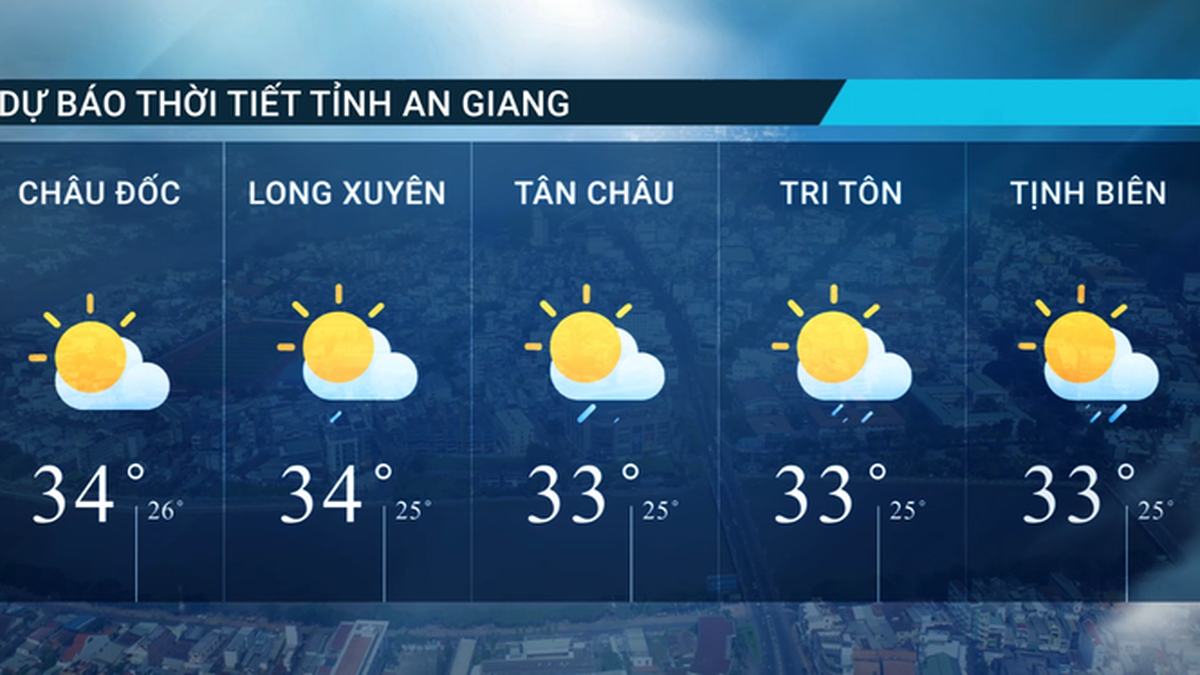
























































































Comment (0)